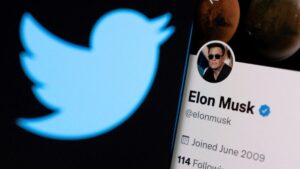 The tech world is currently in an uproar because of this.
The tech world is currently in an uproar because of this.
In a nutshell there was a conference for developers using an open-source programming language called Python in which two male attendees were supposedly making crude jokes about dongles and forking. Both are legitimate computer terms rich with humor potential. Use your imagination. A female attendee grew disgusted with the jokes and snapped a picture of the men and tweeted about it.
The result is that one of the men telling the jokes was fired as was the woman.
To give some clarity I’d like to elaborate on the male dominated culture of IT. It’s male dominated. It’s nerd dominated. Nerdy males sometimes don’t have the best social skills. Ask anyone who knows me. However, it can also be misogynistic. Really, really misogynistic. I’ve seen some things. My job as a technical trainer takes me to many different companies and I’m often immersed in the backroom getting things setup before class. I’ve seen women IT staffers treated like garbage. I’m talking, “Go get us coffee” type behavior. Crude jokes about body parts. I’ve seen women employees who needed help from the IT staff treated in humiliating fashion, forced to almost beg. I’m not saying it’s common, I’m not even saying I’ve seen it frequently, but I’ve seen it.
It’s quite likely that the women who tweeted the message was just fed-up after being immersed in that atmosphere. It’s quite likely that the men meant no harm or even knew they were being offensive. I don’t know, I can’t say for sure. Maybe she lied and there were no crude jokes? Maybe the guys were intentionally trying to humiliate her? It’s impossible to say.
What is clear is that two people have lost their jobs. Why?
I’ll take it at face value. They told some off-color jokes. She was a little peeved and tweeted it. That’s the end of their part in this. What happened next has to do with the companies that employed them. One company decided to fire the jokester. When the internet storm began to slam the other company because of the tweet-instigated firing, they fired the tweeter.
In the end a company can generally fire people for any reason other than one protected by the government; age, sex, race, religion, etc. If they want to fire, they can fire. The publicity from the tweet was bad for both companies although the old adage that there is no such thing as bad publicity isn’t without merit. Both companies were afraid and that’s the crux of the issue.
Ok, I’ll finally get to my opinion. What is happening to the United States? We have become a nation of cowards. Our politicians tell us to be afraid, our media tells us to watch out what we say, our employers fire us for the least sin. We eagerly attack anyone who makes a mistake and roast them on the spit of public opinion. Fear is not our friend. Fear is the enemy. When we embrace fear, and that is all the two firings represent, we destroy freedom.
My most recent novel, the Sword of Water addresses the concept of fear directly. There are two characters who embody the opposite ideas of how to treat fear. I’m going to include an excerpt here from both of them.
*********************************
High Priest Amalagaz talking to his son:
“Do you see what a little fear injects into the relationship?” said Amalagaz with a smile as he leaned back on the cushions, a satisfied smile on his face. “As I have told you many times, you must befriend fear, you must take it close to your heart and understand it completely, fully, intimately. Without fear you cannot rule. Without fear your subjects will overthrow your throne and burn you on a pyre. They will rape your wife and they will murder your children. You must instill fear in their hearts and then they are yours. You must make them afraid of you. Your enemies must fear you and they will react to your moves. Your allies must fear you and they will do as you say. If your enemies don’t fear you then they will take the initiative, they will deploy their forces with vigor and energy. If they fear you they will hide in their citadels and await your approach hiding behind useless defenses, slowly sapping their will to fight, waiting for you to conquer them.”
Taragaz stared raptly at his father, “Fear.”
“Yes, my son. It is not limited to your enemies; it is your most potent weapon in driving your people. Tell them the enemy is plotting against them, tell them the enemy is waiting to destroy them, tell them that the enemy is lurking behind every shadow and they will do anything to stay safe. They will throw their own children onto the flames to keep the fear at bay. Lie to your people to inflame them. Wipe out a little village on your border and claim it was your neighbor’s rapacious armies. Tell them that an unknown enemy is building a fleet, arming ten thousand soldiers for an invasion and they will jump up and shout your name as they kill anyone who speaks against you. The voice of reason is the first casualty to the blade of fear.”
*********************************
Jon Gray to Silenia:
“There’s always reason to fear,” said Jon waving his hands to both sides. “The world is a dangerous place. Someone might be lurking around every corner, waiting to stick a dirk in your ear. You could fall off a horse, you might slip on the ice and break your leg, get an infection, die. You might fall out of a tree because you climbed too high and smash your brains on a rock.”
“So, you’re telling us to just do anything without thinking about the dangers?” said Sorus. “Come now, Jon. These are children. Do you mean to frighten them?”
“She is already afraid. Fear is the great enemy,” said Jon. “Fear can destroy a man or an entire nation.”
“Or a little girl,” said Silenia trembling but standing firm before Jon.
Jon nodded his head and smiled narrowly at the girl, “Exactly. I say that there is much to fear. Sorus suggests we must use caution because of those dangers. He is not far wrong, but we must never succumb to fear. Fear is the tool of evil. Fear is the tool of the despot. The first time you hid from your siblings you did so because of fear. Did that help you?”
“No,” said Silenia, blinking back tears as the memories flooded into her mind with such vividness that she suddenly felt back in that place, hiding, always hiding. “Eventually I had to come out and they used the flat of the knife on me,” she sniffled.
“Yet was it ever easier to hide the next time and the time after, wasn’t it?”
Silenia nodded her head, pursed her lips together, and stifled another sob, “It got easier each time.”
“Fear is the enemy,” repeated Jon. “Sorus, when you were a boy and the others were being chosen as squires did you stand up, did you shout out?”
Sorus shook his head, “I was smaller, sickly.”
“Did not standing up serve you well, each time you failed to say something was it easier to remain silent the next?”
Sorus nodded his head, “Yes, each time was easier, but it did work out in the long run though. You arrived in Elekargul and now I’m here.”
“True enough,” said Jon. “But would you rely on luck, on coincidence, to drive your life?”
“No,” said Sorus, Jerichi, and Silenia in the same whispered tone.
“When your father first murdered an innocent in front of you, Silenia. Did you say anything?”
Now the girl was crying, “No, I didn’t say anything.”
“Why?”
“I was afraid.”
“Fear destroys nations,” said Jon. “People think that it’s fine to say nothing when they see an atrocity, when they see evil. It’s easier to let it be than to get involved, it’s dangerous to try to stop something like that. When you let evil have its way, when you stand idly by, then people who do evil are emboldened. They think they can do more evil and no one will stop them. A petty man with a petty life sabotages a good man to get ahead. An inferior warrior gets an ally to weigh down his opponent’s armor and gains a promotion. Then he becomes a captain, then a general and he promotes his equally unethical companion. Then the battle is lost, the war is lost. All because the person that saw it happening was afraid to step in and do something.”
“But they might die if they step in,” said Jerichi his hands now at his side and his voice barely audible.
“They might,” said Jon. “They often do.”
“What good does it do if they die?” said Jerichi.
“What you are asking me is, ‘What good does it do to conquer your fear and act?” said Jon with a snort. “It makes a nation strong. It inspires those around you to do the same.”
*********************************
Would you take the advice of Amalagaz or of Jon?
Make no mistake, the firings were based on fear. So many other options were available. I’m not going to discuss them today. Fear won again.
Tom Liberman
Sword and Sorcery fantasy with a Libertarian Twist
Current Release: The Sword of Water
Next Release: The Spear of the Hunt




